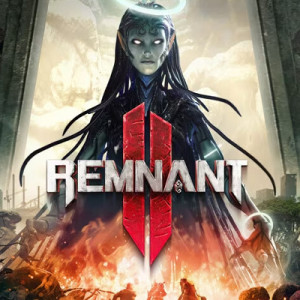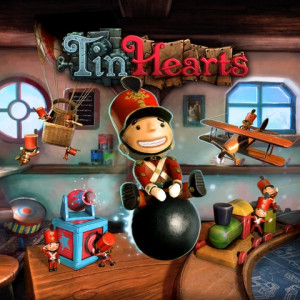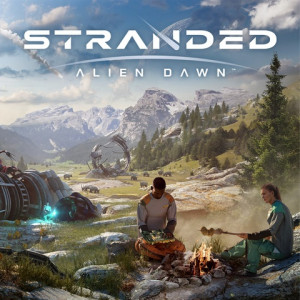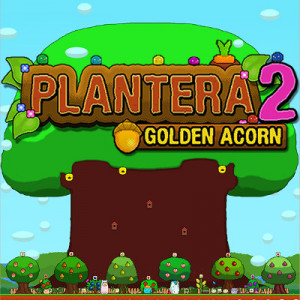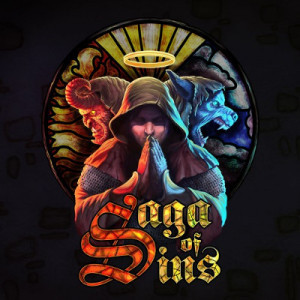A vintage charm -- and the difficulty to match.
Can I even say that roguelikes are "all the rage" anymore? I mean, that implies they're new to most folks, and shiny, and a bit of a fad. At this point it feels like they've just locked into place as a solid genre modifier. Need to give more meat to your short-playsession, quick-loop experience? Just put more randomized elements in.
Which isn't to say anything bad about Pixel Heroes: Byte & Magic for doing this, mind you. It's a tried and true method these days for a reason. And hey, at least bringing it into the mix with a fantasy dungeon-crawling RPG makes some sense, you know?
![]() Pixel Heroes sits largely as a pastiche of classic computer RPGs, your Ultimas and your Baldur's Gates, simplifying the combat and maneuvering down to the absolute barest bones of "line up and choose what to hit the other guy with"...but in the process of bringing in the pop cultural references and cutting the actual plot down as much as the combat, it also turns into a really good pastiche of the tabletop games that inspired those classics. (Or at least, how a campaign of those tabletop games actually went most times, when everyone's 15 and subsisting on nothing but 2-liters of soda and your town's cheapest pizza.)
Pixel Heroes sits largely as a pastiche of classic computer RPGs, your Ultimas and your Baldur's Gates, simplifying the combat and maneuvering down to the absolute barest bones of "line up and choose what to hit the other guy with"...but in the process of bringing in the pop cultural references and cutting the actual plot down as much as the combat, it also turns into a really good pastiche of the tabletop games that inspired those classics. (Or at least, how a campaign of those tabletop games actually went most times, when everyone's 15 and subsisting on nothing but 2-liters of soda and your town's cheapest pizza.)
The campaign always starts in the same way, a way that really shows that the tabletop-specific inspiration was no accident. A tavern, and a Big Quest. You pick three mighty heroes of various classes, with random names and histories and quirks(I've got a mighty Warrioress in my party who apparently is sexually aroused by pink necklaces, just to throw one random one out there), though these don't seem to have any effect on the actual gameplay.
So you get your glorious heroes, your Big Quest, and then you...Promptly ignore the Big Quest to go deal with more manageable stuff closer to home.
![]() See what I mean here? The game's using mechanics riffing on classic videogames and pulling inspiration from them, but its inspiration for what's going on is much more pulling on the tabletop experience.
See what I mean here? The game's using mechanics riffing on classic videogames and pulling inspiration from them, but its inspiration for what's going on is much more pulling on the tabletop experience.
Not that either point of reference, or even that boiling-down I mentioned, actually makes the game significantly less complex. While a lot of the busywork has been taken out, the meaningful-decision meat is still there. Your heroes have armor, weapons, a handful of important skills, and most of the classic stats to keep in mind. A tight backpack shared between all of the party also means hard decisions have to be made on a regular basis, as loot steadily filters in and old equipment has to be simply cast aside.
And of course, like almost any game pulling on the roguelike formula, Pixel Heroes is HARD. Not an unfair hard, most days, but hard. You can only pick one hero to attack or use a skill per turn, and that hero can't be used on your next turn. With skills also having a cooldown of their own, this creates a balance of carefully choosing who goes when, what to make use of, and how to survive. You can't even get into your backpack in a fight, which means no swapping gear and no potions. Each dungeon has a theme that can inform the gear you want in hand(the spooky graveyard is mostly full of, surprise, the undead, for instance), but you can never be absolutely sure.![]()
Naturally, there are some progression mechanics. Classes can be unlocked via completing quests or conquering dungeons, and these classes in turn filter into the tavern the next time you start the game. Unlockable classes offer you new options and tools, giving you better shots at hitting the endgame. The game is even a bit forgiving, in that so long as you can get out the other end of a dungeon and get back to town, everyone can be revived. All their gear and XP aren't lost to the ether, so long as somebody in the party can get back to town.
Mind, it's not that forgiving. Surviving, especially if you take an early loss, is hard. If there's a way to retreat from a dungeon, I haven't seen it. And it's not an impossible sum, but revival at the Temple is no pittance, either.
And the game wants you to know it's hard, too. Your first party wipe, which will almost certainly happen within your first half hour of the game, gets you the achievement "Welcome to Pixel Heroes". Bosses are ferocious, and poor planning can cause a dungeon to strip you of valuable resources before you even get to them.
But there's a sense of fairness. The game doesn't jerk you around much, doesn't pretend like you're going to get one result and then give you another. The only thing it does, is make you commit. You accept a quest, that's it you have to go do it. You leave town, that's it you've got to go to the dungeon now. You get to the dungeon, that's it you've got to get through the other side...or die trying.
![]() The game's not entirely free of outright flaws, of course. Perhaps the biggest one for me is honestly one of interface, and it will seem petty, but hear me out; At least as of this writing, the PS4 version doesn't let you do any menu navigation with the d-pad. In a game that is almost entirely and purely menu navigation, and when I'm going up against 20 years of navigating menus via d-pads even if the main gameplay is purely analog driven.
The game's not entirely free of outright flaws, of course. Perhaps the biggest one for me is honestly one of interface, and it will seem petty, but hear me out; At least as of this writing, the PS4 version doesn't let you do any menu navigation with the d-pad. In a game that is almost entirely and purely menu navigation, and when I'm going up against 20 years of navigating menus via d-pads even if the main gameplay is purely analog driven.
So it's a petty thing, yes. But I'm literally fighting two decades of muscle memory every time I try to do anything in the game. And if you're anything like me, petty things like that can add up. That said, this is such a personal issue for me, and quite frankly such an easy thing to potentially patch out, that I'm not going to hold it against the game. Just be aware of it if you've got the same quirk I do when it comes to inputs.
Because, really, this is a good game. Sure, it's tough. It can be kind of silly. Its graphics aren't always the best faux-retro pixel-art out there. But there's a really, really solid core here. The actual mechanics dive into the heart of what made those old RPGs, made sitting around the table with some dice in hand, fun. It was that thrill of seeing what was next, those hard decisions of what was worth keeping and what had to be tossed. It was the everpresent hunt for new monsters to face, new loot to get, and new power to achieve.
Pixel Heroes: Byte & Magic, understands that. It understands it, and tries its best to be true to that core. And where it stumbles, it's largely because of the stumbling blocks of its genre inspiration, rather than because of its own unique mistakes. There are definitely some quirks and weaknesses to the interface, sure. But when the actual meat is this satisfying, you can overlook such things.
![]() So that kind of gets to the final question...I mean, if you skipped over the verdict up at the top, at any rate. Should you buy this game? Yeah, of course. What we have here is a game that takes its historical inspiration, boils that inspiration down to its barest essentials, and then refines those essentials into a tasty concentrate...All while making it juuuust accessible enough that you don't need to have spent your adolescent years hunched over a 640x480 monitor playing computer RPGs to appreciate what it has to offer.
So that kind of gets to the final question...I mean, if you skipped over the verdict up at the top, at any rate. Should you buy this game? Yeah, of course. What we have here is a game that takes its historical inspiration, boils that inspiration down to its barest essentials, and then refines those essentials into a tasty concentrate...All while making it juuuust accessible enough that you don't need to have spent your adolescent years hunched over a 640x480 monitor playing computer RPGs to appreciate what it has to offer.
And that's pretty dang worth it to me.

